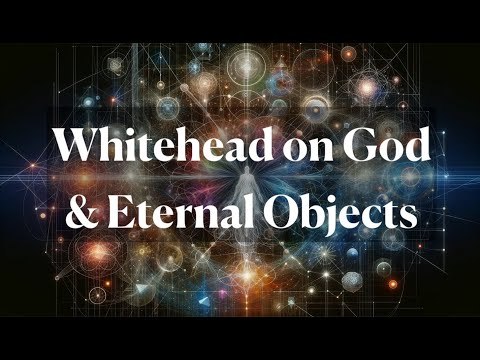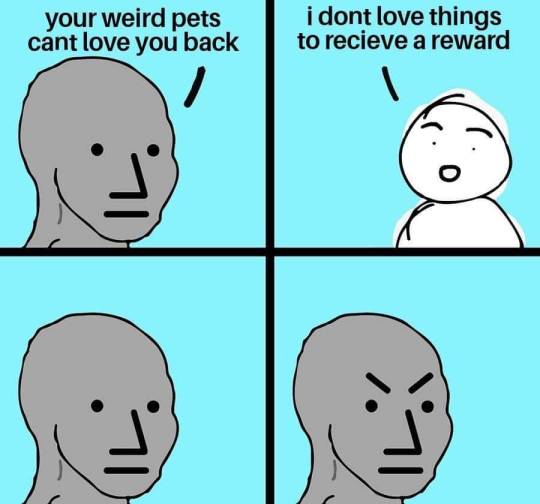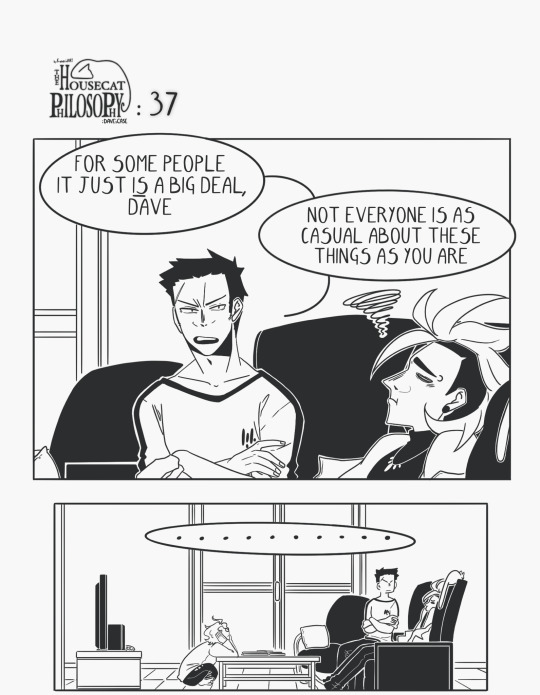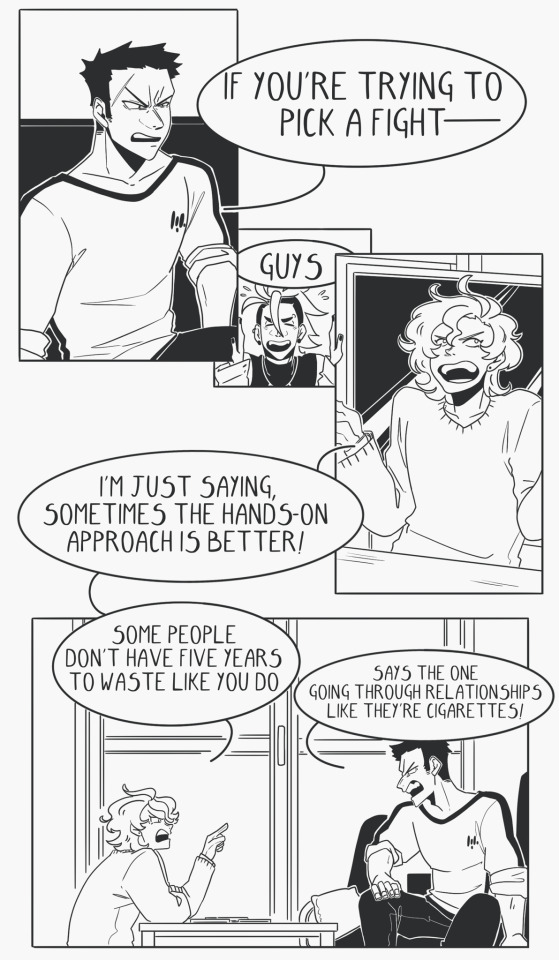#Process Philosophy
Explore tagged Tumblr posts
Text
D.C.: Then art as you define it is a discipline of adaptation to the real as it is. It doesn't propose to change the world, it accepts it as it presents itself. By dint of breaking our habits, it habituates us more effectively. J.C.: I don't think so. There is one term of the problem which you are not taking into account: precisely, the world. The real. You say: the real, the world as it is. But it is not, it becomes! It moves, it changes! It doesn't wait for us to change...It is more mobile than you can imagine. You are getting closer to this reality when you say as it "presents itself"; that means that it is not there, existing as an object. The world, the real is not an object. It is a process.
For the Birds: John Cage in Conversation with Daniel Charles
69 notes
·
View notes
Text
My biggest problem with the concept of autism is that it's ontologically dehumanising, and that it normalises behaviours that are harmful from a social perspective. It makes sense that under neoliberalism with little infrastructure to deal with problems at the broader social and material levels that they are instantiated in, the methodology of treating autism as an individually-situated "mental health condition" (or I suppose as a way-of-being in the best manifestation of this approach, though I challenge that this is ever how it is being truly conceptualised and suppported as) is a popular and maybe the only *immediate* way to respond in any sort of supportive manner.
But, as someone who's struggled deeply with other people my whole life and has always had a host of complicated behaviour that has been pegged as typically or potentially auitistic since being very young, I just cannot accept that the phenomena that produces this behaviour in individuals can be reduced to a label like this. The idea that an individual subject 1. exists and 2. can be socially defective is a distortion inherent to the illness of the colonial technofascism of modern day liberalism. Systems of thought that seek to categorise beings and assign value to them in regards to how well they support said system is a broken epistemology, and many people believe this already on the left but at the same time will still choose to deploy, or even self identify with the labels produced by this system, other examples being concepts like "Clinical Depression" or "Anxiety Disorders". Of course, people exhibit the emotional states of depression and anxiety, but can we really honestly say that these states are causally limited to their individual subject? Why would someone NOT be depressed and anxious about the conditions they find themselves in? I don't think I need to repeat the basic premise of the anti-psych response to the concept of mental illness that folks like Mark Fisher and many others like Foucault and D&G etc. have explored at length, but I think if you are looking at this world with any degree of honesty and criticism you'll find it hard to say that it is full of negative stimuli, and that it is rational to respond to this negative stimuli with worry and despair. The ruling powers that want to preserve these terrible power structures built these modes of categorisation and we have to see outside of them.
When you think about what composes autism, often understood as a failure to socially develop or an attachment to behaviours that are not aligned with the greater social body, might it not occur to think about what social conditions would create this state in an individual?
idk, I never intended to write an essay here but I'd just like anyone who identifies with the concept of autism or is happy applying that label without nuance to others to think about the experiencing subject as being in a world and not a self, in a personal history, an intergenerational history, a socio-political history. When we use the word trauma, and we study the causes of trauma we discover a spider web of causal relations, and these complex causes have extremely complex effects. It's kind of hard to create individual examples, these things are so expansive and interrelated, but I'll maybe try sum up a simple equation to start to poke at all this in a more complex and material manner:
What happens when someone experiences social and material deprivation from a young age, what happens when a person is raised by someone who was raised by someone who was raised by someone who was raised in social material deprivation? When for hundreds and hundreds of years each parents generation has had a fundamental aspect of human social organisation increasingly torn from them (and more recently being torn from the world itself as another supportive body of resources both material and social!) What happens when a person grows up with their behaviour constantly being repressed, cut off from wholistic interpersonal support (think parents working for much of their children's day, and then the rigid and authoritative social structure of the school)?
You might want to say that many seem to adapt to this lifestyle in this world well enough and end up well-adjusted, but is that true at all? It absolutely fucking isn't. Again, I think the real state of the society we developed in is increasingly revealed to newer generations, and we have a responsibility to interrogate all of it and not just what makes us comfortable. The people who are well adapted to this world are practicing mental gymnastics, or worse are knowingly dominating others and shutting their feelings off to participate in the competition with others and destruction of everythign around them. The world we're in is the disease and pathologising the reactions of those sensitive to it has got the causal analysis upside down.
The incredibly varied and inexplicably grouped concept of autism, or "neurotypicality" by those who have accepted the narrative of politically reformed psychiatry is just a natural reaction to the intellectual and sense experience of this society. It is multifaceted and inconsistent because the deprivations are broad, many and complex, and "treating" the "symptoms" is only possible by designing society differently.
#anti-psych#rambling but I'm right#i'm not interested in getting in long debates with people who are completely stuck in theoretical and categorical obsessions with this#this is deeply personal#liberate yourself by accepting pain#that's what being radical means#categories are a flawed ontology#process philosophy#everything is referent to matter#and matter cannot be defined by labelling
14 notes
·
View notes
Text
The Ontology of Being
The ontology of being is a foundational topic in philosophy, focusing on the study of what it means "to be." It seeks to understand the nature, structure, and categories of existence. Questions about being explore what exists, what it means to exist, and how entities relate to one another within the framework of existence. Central to this inquiry is the differentiation between different modes or dimensions of being, such as material, conceptual, and existential.
Key Concepts:
Existence vs. Essence:
Existence refers to the fact that something is, while essence pertains to what something is.
This distinction is central to existentialist philosophy, as seen in the work of Sartre, who claimed "existence precedes essence."
Substance and Accidents:
Substance refers to what exists independently, while accidents are properties that depend on substances to exist.
This distinction originates from Aristotelian metaphysics.
Ontology and Being-in-the-World:
Heidegger's concept of Dasein (being-there) emphasizes that being is always situated in a specific context, interconnected with others and the world.
Modalities of Being:
Modalities include contingent, necessary, possible, and impossible modes of being, as explored in modal logic and metaphysics.
Categories of Being:
Classical ontology attempts to categorize beings (e.g., physical objects, ideas, emotions).
Modern approaches challenge rigid categories, emphasizing fluidity and relationality.
Relational Ontology:
This perspective sees being as defined by relationships rather than isolated essence.
Key Philosophical Approaches:
Parmenides and Heraclitus:
Parmenides focused on the unity and permanence of being, while Heraclitus emphasized change and becoming.
Aristotle:
Developed categories of being and the idea of potentiality and actuality.
Heidegger:
Reframed ontology through the lens of Dasein and existential questions, distinguishing between beings (Seiende) and Being (Sein).
Contemporary Ontology:
Explores pluralistic and non-essentialist approaches to being, including process philosophy, object-oriented ontology, and phenomenology.
Questions Explored in the Ontology of Being:
What does it mean for something to exist?
Are there different levels or kinds of being?
How does being relate to time, space, and consciousness?
Can being be understood independently of human perception or language?
The ontology of being remains a dynamic field that bridges metaphysics, epistemology, and existential inquiry, engaging with both timeless questions and contemporary challenges.
#philosophy#epistemology#knowledge#learning#education#chatgpt#ontology#Ontology#Philosophy of Being#Metaphysics#Existence and Essence#Heideggerian Philosophy#Aristotle and Substance#Modal Logic#Relational Ontology#Existentialism#Categories of Being#Process Philosophy#Being and Becoming#Phenomenology#Being-in-the-World#Reality and Perception
2 notes
·
View notes
Text
Hot take, but sometimes I wonder just where the line between fact and fiction is. Why do we have such a binary? Is it possible things are more gray than that? When an artist is possessed by an idea, an urge to create a work, is it not also true to say the art creates the artist? If there is an ouroboros nature to creativity like this, artist makes art and art makes artist, then one could come to the conclusion that perhaps what is reality and what is fictitious is merely a matter of what exists *now*.
6 notes
·
View notes
Text
Cycles of Faith and Doubt
I am asking my way out of nothingness, through cycles of assertion and doubt. In this process, I must privilege an interior in order to exist at all—that is, to be an object of apparent knowing. And so I conceive of self and not-self, or Other. Their ongoing relationship is in principle the whole of Reality, or Self-as-process. I am this one, ongoing Self-as-process. The Self-as-process becomes…
#advaita vedanta#Buddhism#christianity#dialectic#dialogism#doubt#essay#Essays#faith#god#mysticism#philosophy#poetry#process#process philosophy#religion#solipsism#tao#taoism#vedanta
3 notes
·
View notes
Text
Whitehead, God, and Eternal Objects (Dialoguing with Darren Iammarino)
Darren and I had an intense geek out session exploring some of Whitehead’s categoreal scheme. Key points include: The complex nature of eternal objects in Whitehead’s philosophy and the lack of consensus on the subject among scholars. The interaction between eternal objects and actual occasions, and how this relates to the primordial and consequent natures of God. The idea that the Eternal is…

View On WordPress
7 notes
·
View notes
Text
Some people become stuck with this Cartesian view of reality, of animals and of the philosophy of mind. I choose to see reality as being meaning-laden,or perhaps moreso as being capable of building meaning and relationships at differing levels. Every individual bit of matter or energy has it's own little "life", and when you get large groups of these things together they get even more lively, they become atoms, then proteins, then cells, then organisms. And these things can form relationships of all levels of complexity and that's beautiful. They evolve and feel, maybe the feel pain or hunger or maybe they just exhibit attraction or charge, but when they get "lively " enough they also take comfort in becoming and in existing. I'd even like to believe that all things find aesthetic "love" in that, not just animals.
I think the view that humans and animals or even reality is just some automaton running on cosmic gears clunking along is outdated at best, and harmful at worst. Maybe being a dualist who ascribes clockwork to the cosmos and automaton minds to animals made sense in the past, but I'm not even sure if it did then either... Life is more complicated than that. We have literature and philosophy, we have relationships of all kinds. Maybe in the mere fact of existing in itself everything automatically builds it's own meaning, maybe by becoming and living we are that meaning, and maybe the minds of even the smallest creatures are capable of becoming in their own ways too? Who are we to draw the line at mammal or vertebrae? Why must humans be the only ones capable of making meaning and experiencing some kind of love? I'd like to think that's what everything is doing at some level.
Sure you can scoff at my soft panpsychist cosmology if you want, but to me it is the most valid and elegant solution to not only the problem of mind, but also the problem of nihilism, and so is personally fulfilling to see love as a process of building and creating meaning by existing and making things exist. And I think all creatures and things, from spiders to jellyfish to people are able to create and make meaning.
In short- yeah, I think my weird pet jellyfish can love me back in its own way. And if you disagree I'll chock that up to a lack of creativity, or perhaps meaning, in your own life.

225K notes
·
View notes
Text
youtube
0 notes
Text
Logical reference and AI
Can appreciate utility of logical reference when have a significant number of people expressing a preferred narrative that contradicts with reality.
Logical reference is critical if would have options plus means opportunity for processes independent of preferred beliefs.
Process driven -- comes to the fore with conversational AI.
Embody logical reference as require complex algorithms and statistical methods to manifest entity in data created by conscious agency.
Process triggered by prompt.
0 notes
Text
One should remain a process, one should never become a thing. That is intelligence.
Osho, Intelligence: The Creative Response to Now
324 notes
·
View notes
Text




The Housecat Philosophy - Ep 37
Ep 00 || < Prev || Next >
Read the next four episodes on Patreon || support me on ko-fi~✨
#the housecat philosophy#artists on tumblr#original comic#webcomic#original art#my sketches#ah i love writing sal and lu in the same place#can't wait to get deeper into them they have probably the most ridiculous relationship i've ever made up#anyway as a psa#i was actually hoping to post this one with an announcement that the comic was finally on webtoon but!!#the process of prepping it for the site is turning out to be surprisingly long ????#apparently my meant to be read top to bottom comic is too meant to be read top to bottom for the read top to bottom site#i've drawn panels that were nearly too long for the max length allowed by the site hahaha........#wow cropping strip 38 is gonna be a nightmare#ANYWAY just to let you all know im working on it#who would have thought letting 37 strips pile up would mean having 37x the work to do not me that's for sure#i absolutely did not call this upon myself in no way whatsoever
465 notes
·
View notes
Text
The Philosophy of Relational Ontology
Relational ontology is a branch of metaphysics that focuses on the idea that entities exist and gain their meaning through their relationships with other entities, rather than being independent and self-contained. It challenges the traditional, substance-based ontology, which views entities as possessing intrinsic properties that define them in isolation. In relational ontology, the essence or identity of things is shaped by the web of relations in which they are embedded.
1. Core Concepts of Relational Ontology
Being-in-Relation: The foundational idea of relational ontology is that entities are defined by their relations rather than their inherent qualities. In this view, no entity exists in isolation; rather, all beings are interconnected, and their existence is shaped by their relationships with others. This contrasts with the traditional substance ontology, which sees entities as having intrinsic, unchanging properties.
Relational vs. Substantial Ontology: Substantial ontology posits that things exist independently and their identity is determined by their internal characteristics. Relational ontology, by contrast, holds that the essence of a thing arises from its relations to other things, making these relations central to the understanding of existence.
2. Historical and Philosophical Roots
Process Philosophy: A key influence on relational ontology comes from process philosophy, especially the work of Alfred North Whitehead. In process philosophy, reality is understood as a series of interconnected events and processes, with entities constantly in flux, shaped by their interactions with others. Whitehead’s concept of actual occasions and the interrelatedness of events is foundational to relational thinking.
Phenomenology and Existentialism: Philosophers like Martin Heidegger and Maurice Merleau-Ponty also emphasize the relational nature of existence. Heidegger’s concept of being-with-others (Mitsein) highlights how human existence is fundamentally relational, and Merleau-Ponty explores how perception and embodiment are shaped by our relationships with the world and others.
Eastern Philosophy: Relational ontology is often compared to ideas from Buddhism and Taoism, which emphasize the interconnectedness of all things. The Buddhist notion of dependent origination (pratītyasamutpāda) states that all phenomena arise in dependence on causes and conditions, denying the existence of independently existing entities.
3. Relational Ontology in Social and Political Philosophy
Identity and Social Relations: In social philosophy, relational ontology is applied to understand how personal and social identity is formed through relations. Feminist philosophy and social constructivism often draw on relational ontology to critique individualistic and essentialist understandings of identity, emphasizing that identity is shaped by social, cultural, and historical contexts.
Interpersonal Ethics: Relational ontology informs ethical discussions about the self and others, suggesting that ethical behavior arises not from abstract principles, but from the recognition of our interdependent existence. Philosophers like Emmanuel Levinas argue that ethics is grounded in the relationship between self and the other, where the face of the other demands a response that acknowledges their humanity.
Communitarianism: In political theory, relational ontology is aligned with communitarianism, which critiques liberal individualism. Communitarians argue that individuals are deeply embedded in social and communal relationships, and these relationships are essential for understanding justice, rights, and responsibilities.
4. Relational Ontology in Science and Environmental Ethics
Quantum Physics and Relational Ontology: Some philosophers argue that modern physics, particularly quantum mechanics, supports a relational view of reality. Quantum entanglement, for instance, suggests that particles do not have definite properties until they interact with other particles, supporting the idea that entities are defined by their relations.
Ecological and Environmental Ethics: Relational ontology also plays a significant role in environmental philosophy. It challenges the anthropocentric view that humans are separate from nature, emphasizing instead that humans are part of a larger ecological web. Deep ecology and other environmental movements adopt relational thinking to advocate for the intrinsic value of ecosystems and the interdependence of all life forms.
5. Critiques and Challenges
Objectivity and Relational Ontology: Critics of relational ontology question whether it can account for objective knowledge. If entities are only understood through their relations, it may be difficult to establish an objective foundation for truth. Relativism is a potential problem if all meaning is seen as dependent on particular relationships and contexts.
The Problem of Individual Autonomy: Another critique focuses on the implications for individual autonomy. If entities, including persons, are fully constituted by their relationships, critics argue that this could undermine the idea of personal freedom and responsibility. Relational autonomy attempts to address this by emphasizing that autonomy itself is relational, shaped by social interactions and dependencies.
6. Relational Ontology in Contemporary Philosophy
Poststructuralism and Deconstruction: In poststructuralism, relational ontology resonates with philosophers like Jacques Derrida, who emphasize the instability of meaning and the play of differences. Deconstruction challenges the notion of fixed identities and emphasizes the relational nature of language, meaning, and existence.
New Materialism: In new materialist thought, relational ontology influences discussions about the agency of matter and the interconnectedness of human and non-human entities. Philosophers like Karen Barad draw on quantum physics to argue that matter itself is relational, challenging the traditional divide between subjects and objects.
7. Relational Ontology in Religion and Theology
Theology and Relationality: In theology, relational ontology has been influential in discussions of the nature of God and divine action. Process theology builds on the relational ideas of process philosophy to argue that God is not a distant, unchanging entity, but is dynamically involved in the unfolding of the world through relationships with creation.
Interfaith Dialogue and Relational Being: Relational ontology also plays a role in interfaith dialogue, where understanding religious differences requires an appreciation of the relational context in which beliefs and practices develop.
Relational ontology challenges the traditional notion of independent entities with fixed identities, proposing instead that existence and meaning are fundamentally shaped by relationships. This approach has profound implications across philosophy, from metaphysics and ethics to politics, science, and theology. By focusing on interconnectedness, relational ontology offers a framework for understanding the complexity of identity, ethics, and existence in a world defined by interaction and interdependence.
#philosophy#epistemology#knowledge#learning#education#chatgpt#ontology#metaphysics#ethics#psychology#Relational Ontology#Metaphysics of Relations#Process Philosophy#Interconnectedness#Social Ontology#Environmental Ethics#Relational Identity#Quantum Relationality
4 notes
·
View notes
Quote
[Man] loves the process of achieving, but does not really like to have achieved, and that is, of course, terribly funny. In a word, mankind is a comical construction; there’s a big joke in all of this, obviously.
Fyodor Dostoyevsky, Notes from Underground
#philosophy#quotes#Fyodor Dostoyevsky#Notes from Underground#goals#success#achievement#process#comedy#tragedy#humanity
857 notes
·
View notes
Text

ursula le guin’s afterword to the farthest shore
#ursula le guin#earthsea#this is so crazy this is like my philosophy as well… the foundations of my own novel#which i have been struggling to write (she talks about her writing process in this as well)#mannnnn ursula ursula ursula we’re really in it now#okay i think i’m done posting these for now tho i just wanted to save them !!!!#shoebox
95 notes
·
View notes
Text
Review of "The Blind Spot: Why Science Cannot Ignore Human Experience"
Review of The Blind Spot: Why Science Cannot Ignore Human Experience (MIT Press, 2024) by Adam Frank, Marcelo Gleiser, and Evan Thompson By Matthew David Segall In The Blind Spot, Frank, Gleiser, and Thompson offer an urgent philosophical intervention into humanity’s all but doomed technoscientific civilizational project. The authors argue cogently that our contemporary scientific culture has…

View On WordPress
2 notes
·
View notes
Text

A page from my sketchbook 😎🔥🥾
Please like, follow and reblog if you enjoy my work. Your support is most appreciated! 😎🤘🏼
#artists on tumblr#artwork#drawing#sketchbook#art process#illustration#comics#webcomics#art#comic strip#webcomic#webtoon#artist#art on tumblr#short comic#digital art#digital artist#indie comic#contemporary art#meditations#stoic philosophy#philosophy#marcus aurelius#surrealism#absurdism#funny#lol#humor#dark humor#comix
37 notes
·
View notes